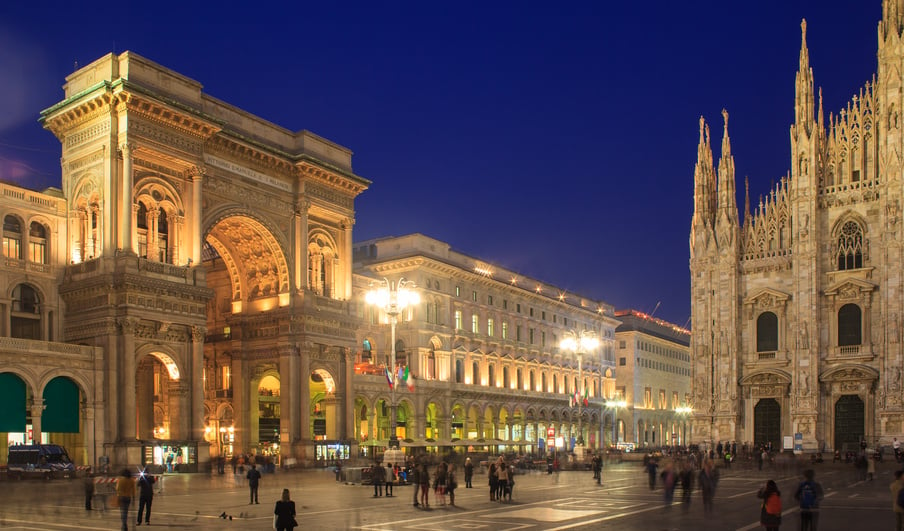In brief
On December 3, 2020, Italian Government enacted a new Decree, containing some new measures related to the COVID-19 emergency. These provisions came into force on December 4, 2020 and will apply until January 15, 2020.
The decree provides for the following measures:
1. MANUFACTURING, COMMERCIAL AND PROFESSIONAL ACTIVITIES.
On the entire territory of Italy, all manufacturing and commercial activities must comply with the provisions in the Protocol dated April 24, 2020, containing measures aimed at avoiding the spread of COVID-19 at the workplace (you can read more about this Protocol here).
Furthermore, the new Decree explicitly recommends the use of smart working: until December 31, 2020, this type of contractual arrangement can be put in place even in the absence of individual agreements, through a “simplified” procedure made available during the pandemic.
The new Decree also provides that:
- stores and shops can be open provided that (i) interpersonal distance of at least one meter is met at all times and (ii) access to stores are spaced out, as a means to avoid crowds within the store and (iii) customers remain in the store only for the time strictly necessary to purchase items. Stores and shops must also implement any additional health and safety protocol applicable to their business sector.
- until January 6, 2021, medium and large stores can be open to the public until 9.00 p.m. and must stay closed on holidays, if located inside malls. Such restrictions do not apply to businesses identified as essential (i.e. pharmacies, health centers and grocery stores).
- restaurants can sit at each table, safe for people belonging to the same family or who live together. The following activities are allowed without time restrictions: (i) restaurants inside hotels, limited to customers who stay overnight; on December 31, 2020, only room service will be allowed from 6.00 p.m. to 7 a.m. the following day; (ii) home delivery services in compliance with health and hygiene regulations for both packaging and transport activities; (iii) sale of food and beverage located in service areas along highways, in hospitals and airports, with the obligation in any case to assure compliance with health & safety protocols. Furthermore, take-away is allowed until 10:00 p.m. but it is prohibited to eat in the restaurant or outside of it.
2. RESTRICTIONS AT REGIONAL LEVEL
The new Decree extends the regional restrictions already in place for regions classified as “high risk regions” (i.e. level 3) and “very high risk regions” (i.e. level 4). You can read more about these restrictions in our newsletter here.
Starting December 6, the regions identified as “high risk regions” are the following: Basilicata, Calabria, Lombardy, Piedmont, Valle D’Aosta, Tuscany and the Province of Bolzano. The region of Abruzzo is instead still classified as very high risk.
However, each region can implement different restrictions depending on how serious the spread of the virus is in each area.
With regard to the entire national territory:
- from December 21, 2020 to January 6, 2021 it will be prohibited to move from one region of Italy to another;
- on December 25 and 26, 2020 and on January 1, 2021 it will be prohibited to move outside the territory of the municipality where one is located.
During the above mentioned restrictions, travels will still be allowed for the following reasons: work, absolute urgency, health needs, study, return to one’s domicile, home or place of residency.
3. RESTRICTIONS ON TRAVEL
Anyone entering Italy must sign a declaration confirming which foreign countries and territories he/she has stayed in or transited in in the previous fourteen days.
Entry and transit in Italy is allowed only for work reasons, absolute urgency, health needs and study purposes, to anyone who, in the previous fourteen days, has transited or stayed in non-Schengen countries with the exclusion of Australia, Japan, New Zealand, Rwanda, Republic of Korea, Singapore Thailand, and Uruguay.
Anyone who enters in Italy and, in the previous fourteen days, has transited or stayed in non-Schengen countries, including Australia, Japan, New Zealand, Rwanda, Republic of Korea, Singapore Thailand, and Uruguay, must quarantine for fourteen days.
From December 10, 2020, anyone entering Italy from a Schengen country, or who has stayed in a Schengen country in the previous fourteen days, must have resulted negative to a swab test 48 hours prior to his/her entry in Italy; otherwise, they must quarantine for fourteen days.
From December 21, 2020 to January 6, 2020, anyone who enters in Italy, including people travelling from a Schengen country, must quarantine for fourteen days.





